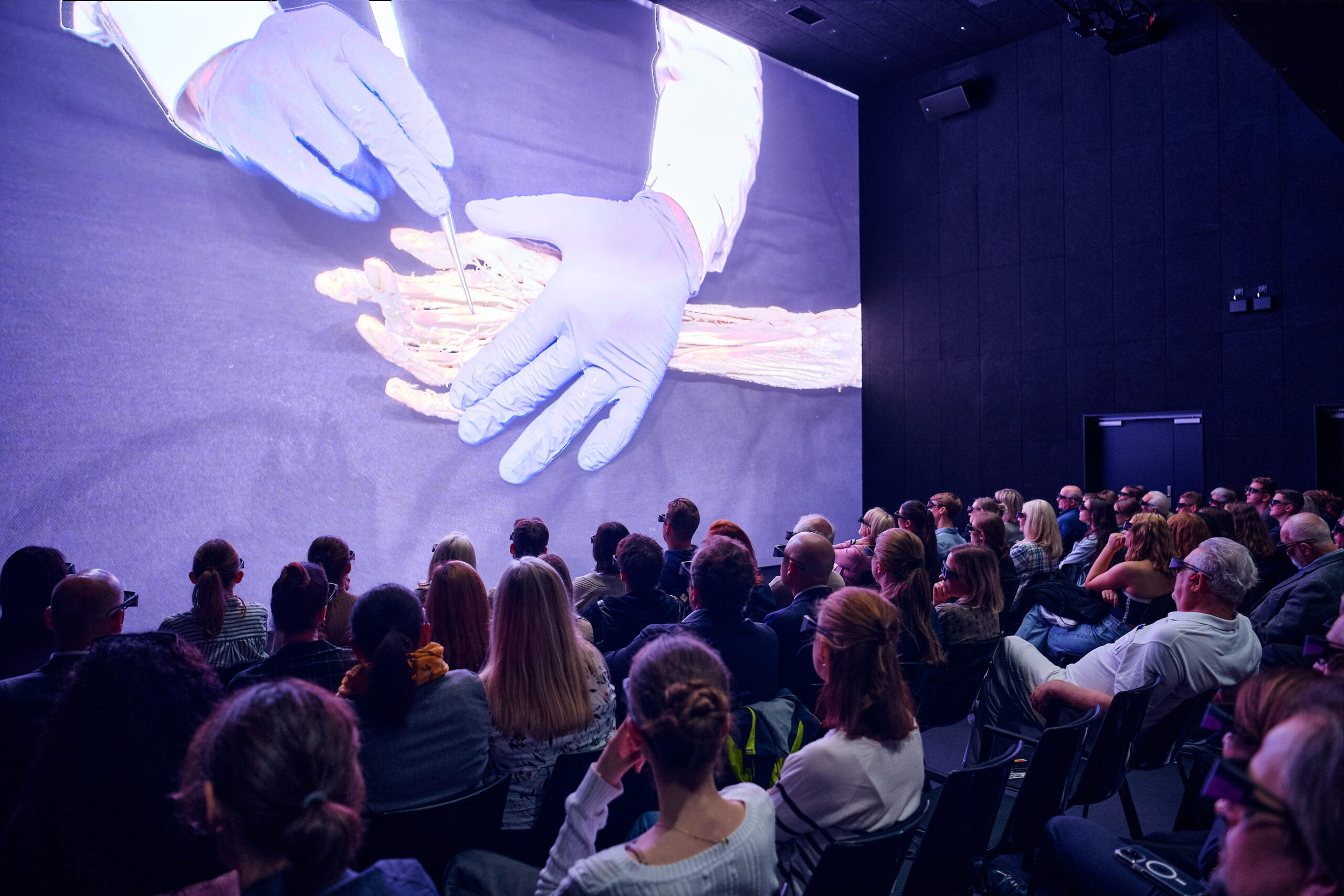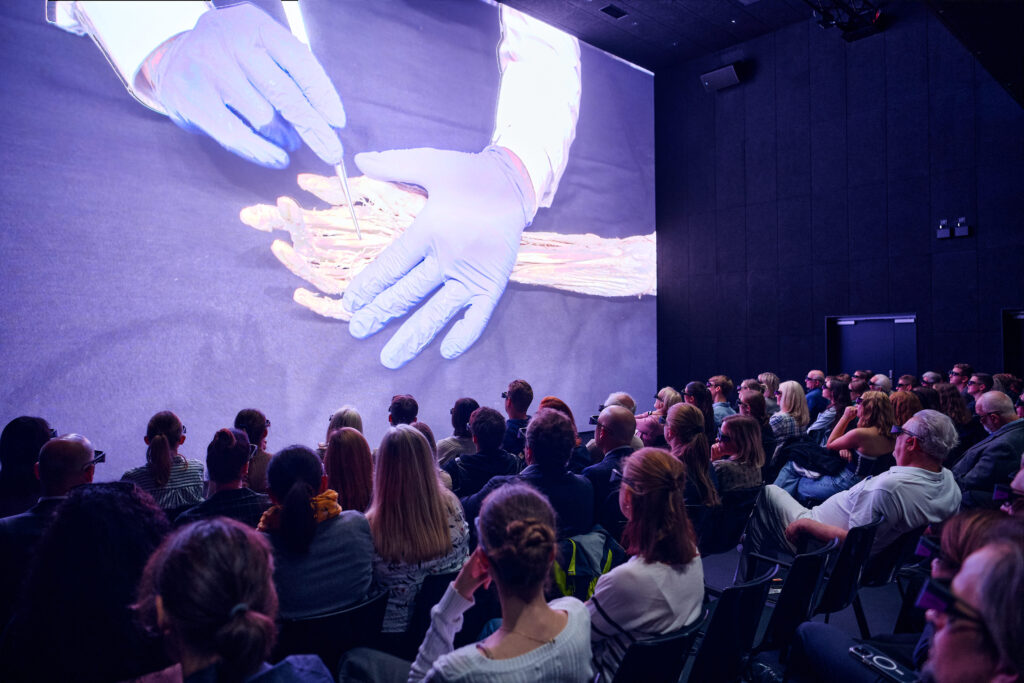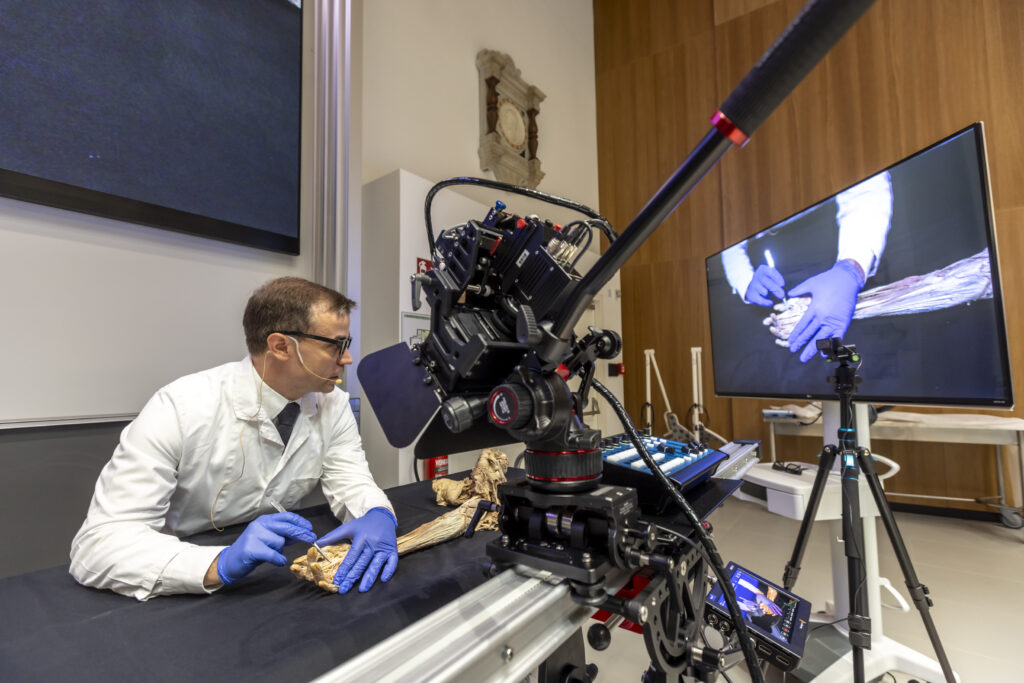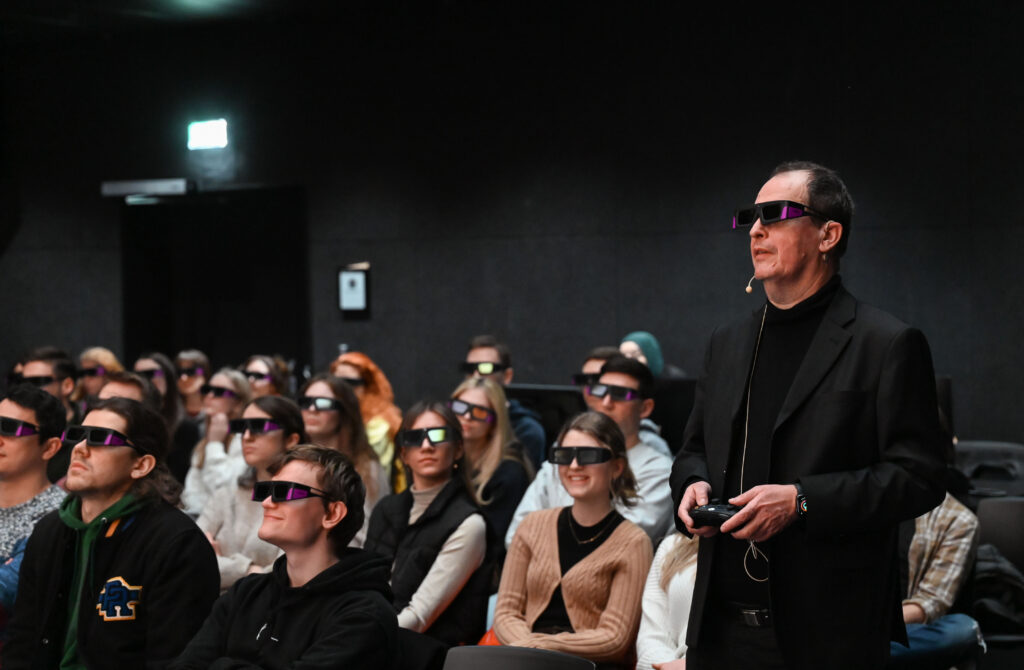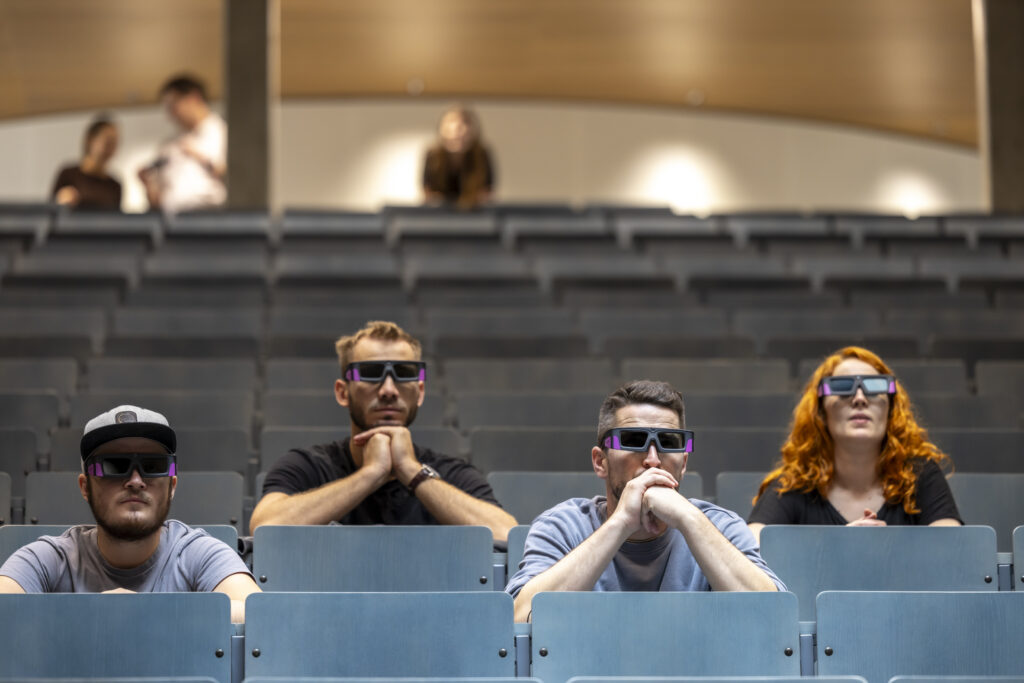- Press text as PDF & Images
- More about the Virtual 3D Anatomy Lecture Hall
- More about the Ars Electronica Futurelab
- More about the Inavation Awards 2025
(Linz, February 5, 2025) A pioneering project in medical education was honored last night at the prestigious Inavation Awards ceremony held at the Integrated Systems Europe (ISE) trade show in Barcelona. In the “Healthcare” category, the virtual 3D lecture hall – an innovation from Austria’s Johannes Kepler University (JKU) Linz, Medical University of Graz, Ars Electronica Futurelab, and PKE Electronics – prevailed over three other nominees. The project enables live transmission of anatomy lectures in stereoscopic 3D – a technological first that has been connecting the Medical Faculty of the JKU Linz and the Medical University of Graz since September 2024.
The virtual 3D lecture hall links the JKU medSPACE 3D training hall at the Johannes Kepler University Linz with the large anatomy lecture hall at the Medical University of Graz in real time. “Virtual Anatomy” is taught in Linz under the direction of Prof. Franz Fellner, while Prof. Niels Hammer and his team present physical specimens in Graz. Equipped with 3D glasses, students can now attend the lectures live on large-format display surfaces, even though they are 200 km (over 120 miles) apart – for an even deeper understanding of the anatomical relationships of the human body. The Ars Electronica Futurelab developed the necessary technology – with the challenge of transmitting the data volumes required for high-resolution 3D streaming in the best possible quality and with the lowest possible latency.
Technology for tomorrow’s medical education
“The fact that virtual and classical anatomy are now being taught in a shared virtual 3D lecture hall is a significant added value for students,” says JKU Rector Stefan Koch. ”For us at the Ars Electronica Futurelab, this project shows how interdisciplinary collaboration creates innovation that benefits society. Continuous research and the commitment of many individuals and institutions, such as the entire Ars Electronica, are the key to this successful cooperation, which is having an ever-widening impact: from the first ‘Anatomy for All’ screenings at the Ars Electronica Center in 2015 to medical teaching across Austria. We look forward to exploring where this shared journey will take us next,” says Roland Haring, Managing Director of the Ars Electronica Futurelab. “From a technological standpoint, networked 3D teaching, synchronously at two university locations, is a high-tech pioneering effort that enables students to be trained using the most advanced tools currently available,” says Herwig Rehatschek, project manager for Virtual Anatomy at the Medical University of Graz.
Innovation in 3D
A transdisciplinary team from JKU, Siemens Healthineers and Ars Electronica Futurelab has already received numerous international innovation awards for the underlying infrastructure – the software Cinematic Anatomy x Deep Space and the 3D lecture hall JKU medSPACE. The software enables users to look deep inside the human body and view structures such as organs, blood vessels, and muscles larger than life as razor-sharp 3D objects from any angle. At JKU medSPACE, up to 100 students can attend lectures on virtual anatomy in stereoscopic 3D on a 14×7 meter screen with 8K resolution.
A new technical infrastructure has been created for the anatomy lecture hall in Graz: up to 500 students can now follow the teaching content in stereoscopic 3D and 4K resolution on a 7×4 meter LED wall. The technical planning for the infrastructure of the lecture hall was carried out by the planning office Outstanding Media and implemented by PKE Electronics. Anatomical specimens are filmed in 3D in Graz using a special 4K mirror rig camera, and the video is presented live both in the lecture hall itself and in the JKU medSPACE in Linz. The 3D camera images are transmitted as stereoscopic Ultra HD video at 7680×2160@60Hz. The presentation requires maintaining resolution and brightness with lossless, synchronous transmission and minimal latency on the part of the 3D camera. To display Cinematic Anatomy x Deep Space simultaneously in Graz while being controlled in the JKU medSPACE in Linz, the software is also rendered in real-time in Graz.
Winning the Inavation Award 2025 in the Healthcare category proves once again that this innovative 3D lecture hall is revolutionizing medical education: by enabling students to experience anatomy lectures together in real-time, in lifelike 3D, across multiple locations.
Inavation Awards
The Inavation Awards are presented at Integrated Systems Europe (ISE) in Barcelona. The awards recognize innovation and outstanding achievements in the audiovisual industry in a number of categories, including groundbreaking projects, innovative products and influential industry personalities. ISE is one of the world’s largest AV and system integration trade shows, bringing together professionals worldwide.
Ars Electronica Futurelab
The Ars Electronica Futurelab is an artistic research and development laboratory and studio based in Linz. In collaboration with partners worldwide, it realizes technical solutions, immersive artworks, interactive installations, experiments and many more projects and works.
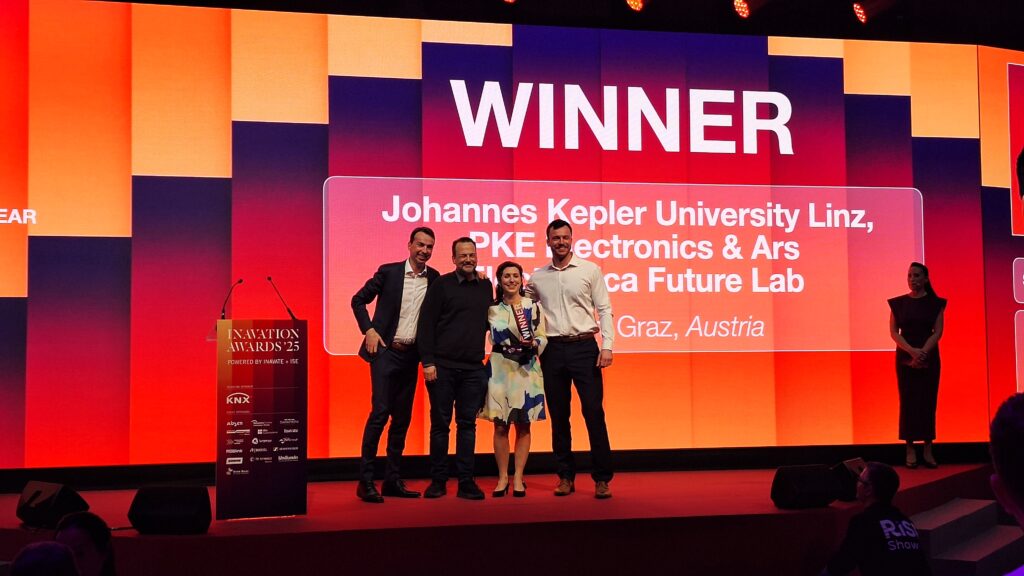
Inavation Awards 2025: Presentation in Barcelona at ISE
Photo showing: OA Dr. Mario Scala (Kepler Universitätsklinikum), Roland Haring (Managing Director Ars Electronica Futurelab), Michaela Hofer (Medientechnik Johannes Kepler Universität), Ass. Dr. Julian Niedermair (Kepler Universitätsklinikum)
Photo: Ars Electronica Futurelab / Patrick Müller
